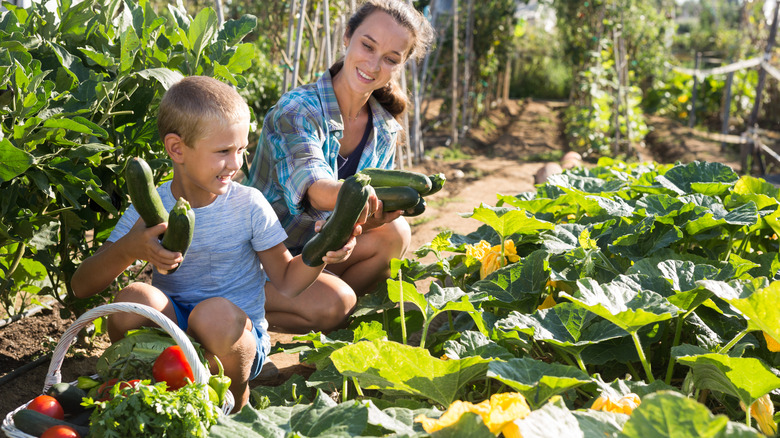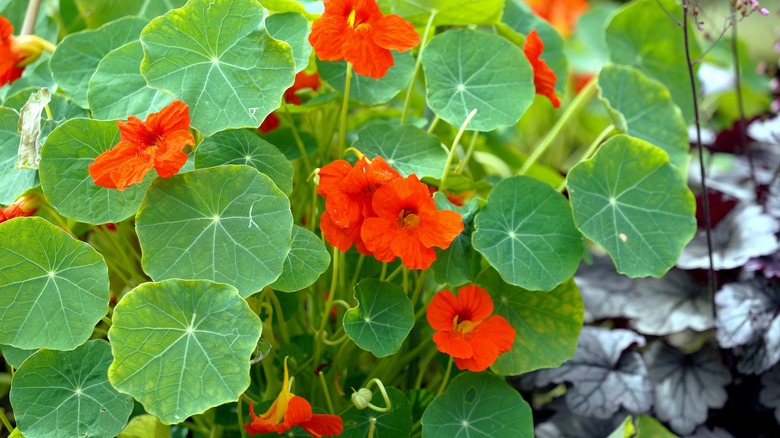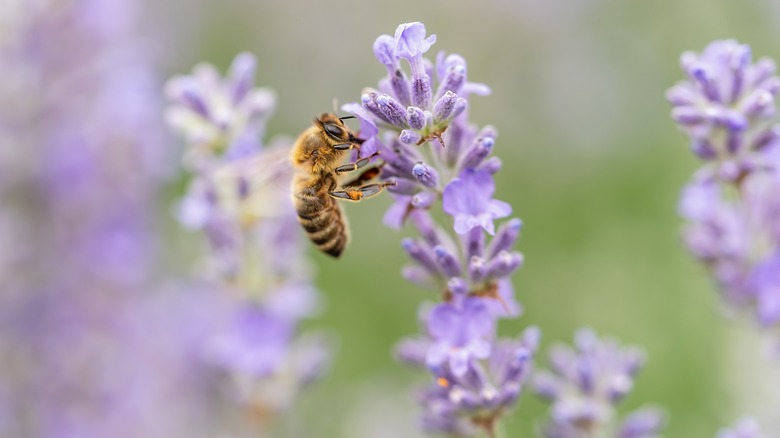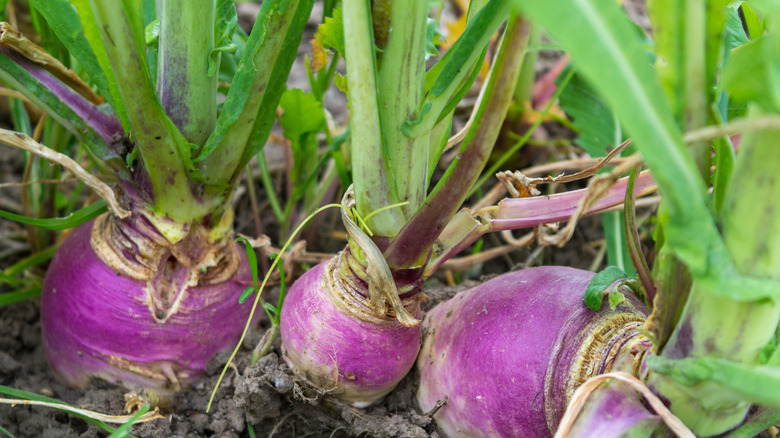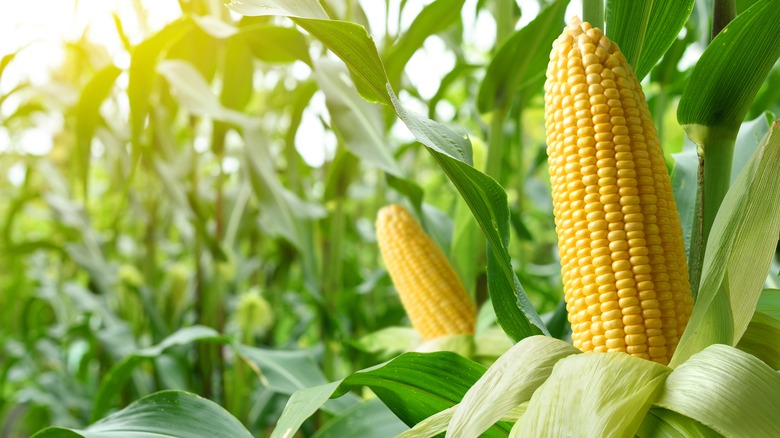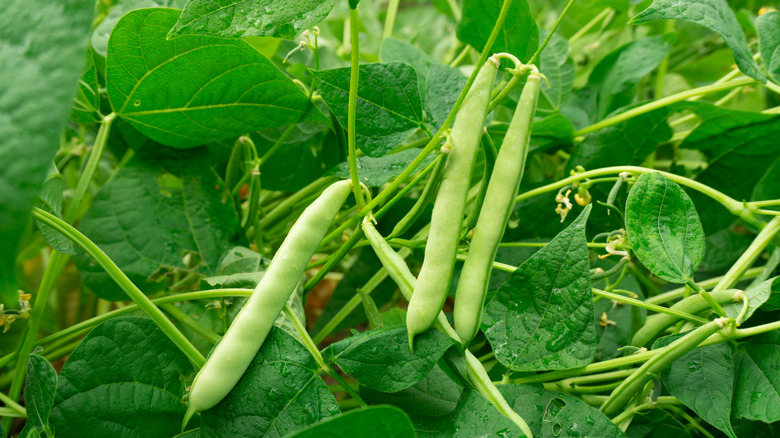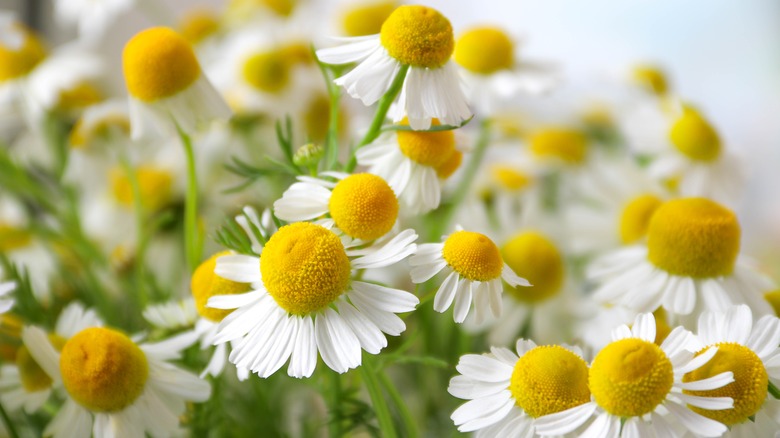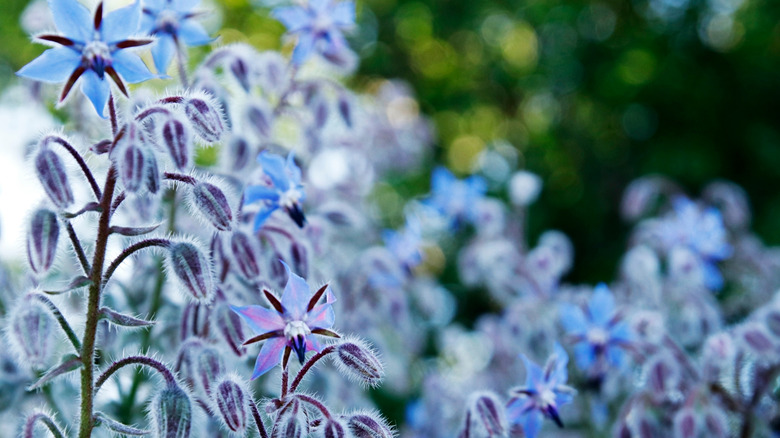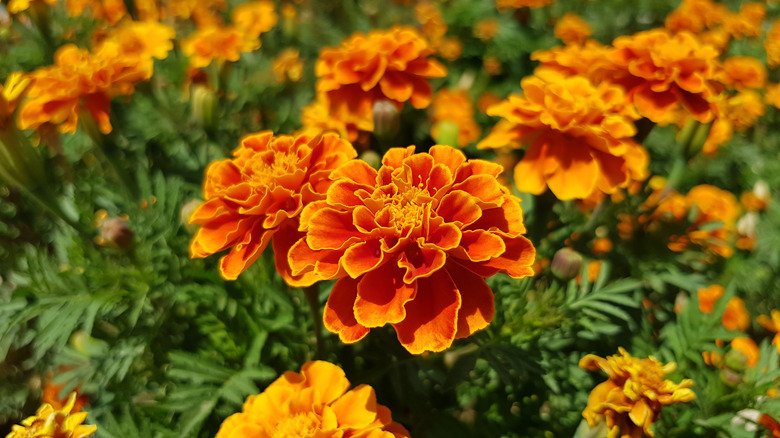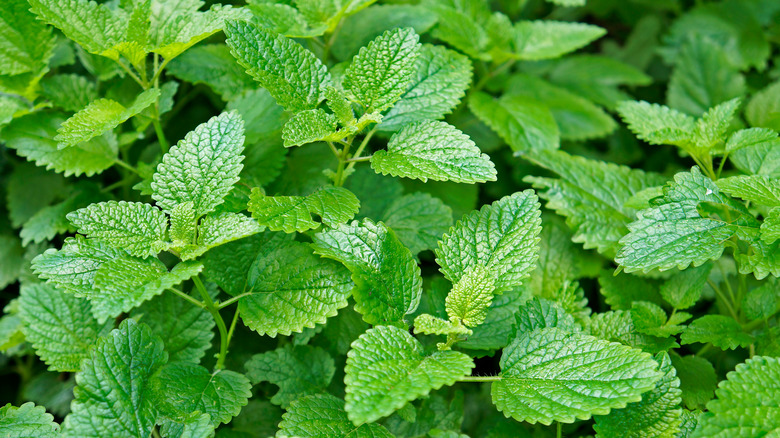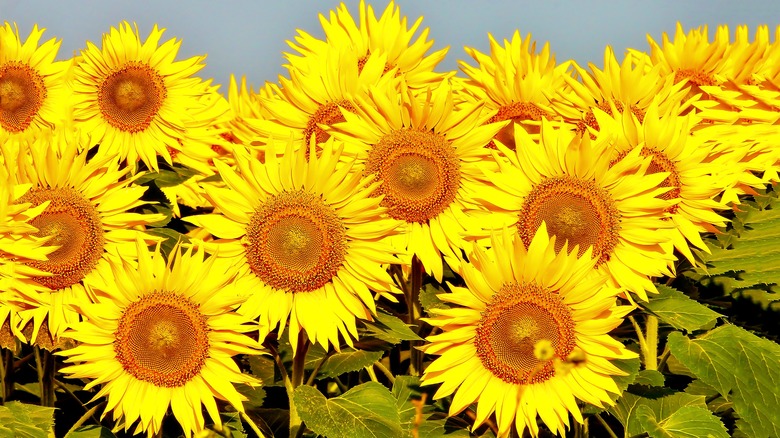10 Companion Plants You Should Grow Next To Zucchini In Your Garden
Zucchinis are definitely some of the easiest plants to grow, even if your thumbs aren't green. They can be planted directly in the garden and sprout in a few days once you get their moisture levels right (via Miracle-Gro). If you plan on zucchinis this planting season, consider growing zucchini companion plants alongside them. Using companion plants is an easy strategy to map garden space for efficient soil usage. Companion plants are also a great way to fix a plant's growth, pest, and flavor problems while creating more produce at the same time. It's a win-win.
Like most squash plants, zucchinis aren't difficult to grow, but certain conditions can threaten their health. According to Savvy Gardening, some of the most popular of these are poor pollination, fungal infections, and pests such as aphids and squash beetles. Luckily, planting the right companion plants for zucchini can help you create a better environment to combat these issues. Let's explore 10 companion plants you should grow next to zucchini in your garden.
1. Nasturtiums
Nasturtiums (Tropaeolum) have a unique peppery-sweet taste and are often an addition to meals, which is also why aphids and squash beetles find these plants delicious, so they'll ignore your precious zucchini if they're present. Kellogg Garden Products states that nasturtiums are easy to grow and have beautifully colored flowers that attract pollinators to your garden. If you need another reason to plant nasturtiums, you'll be pleased to know that their leaves, seedpods, and even flowers are edible.
Bloom Season: Spring to fall
USDA Growing Zone: 2 to 11
Growing Conditions: Full sun
Soil Type: Well-draining
Size: 1 to 10 feet tall, 1 to 3 feet wide
2. Lavender
Lavender (Lavandula spp.) is a woody perennial plant that is easy to grow both in a garden and pot (it typically sprouts anywhere from two to four weeks after being planted). While most people would agree that lavender smells lovely, Pests Banned writes that aphids do not, and are repelled by the fragrance. In addition, lavender's purple flowers attract pollinators such as bumblebees and honey bees, which will increase pollination for your zucchini.
Bloom Season: Summer
USDA Growing Zone: 5a to 9a
Growing Conditions: Full sun
Soil Type: Dry and well-drained
Size: 2 to 3 feet tall, 2 to 4 feet wide
3. Radishes
Radishes (Raphanus sativus) are one of the most defensive plants possessing a strong odor that repels squash vine borers that prey on zucchini, cucumber, and other squash plants (via Dre Campbell Farm). Radishes are a super choice because they are delicious, healthy, easy to grow, and don't take long to sprout, but when they do, every part of the plant is edible. Finally, pollinators find their flowers and leaves attractive, which helps to improve the zucchini's pollination.
Bloom Season: Summer
USDA Growing Zone: 2 to 11
Growing Conditions: Full sun
Soil Type: Well-drained
Size: 6 to 18 inches tall, 3 to 14 inches wide
4. Corn
If you're wondering how to make zucchini plants produce more, corn (Zea mays) is the perfect companion plant because its tall and sturdy stalks provide your zucchini with a path to climb. Corn is exceptionally easy to plant and doesn't require a lot of tending, unlike most other companions of zucchini. Almanac advises waiting until the corn is at least 6 inches tall before planting the zucchini so the corn stalks are strong enough to support it.
Bloom Season: Spring
USDA Growing Zone: 2 to 11
Growing Conditions: Full sun
Soil Type: Loamy and well-drained
Size: 6 to 8 feet tall, 1 to 2 feet wide
5. Beans
Apart from their deliciousness, beans (Phaseolus vulgaris) have added value for zucchini as they grow fast (beans generally sprout in two to five days). Commonly known as the common bean or French bean, a bean is an annual herbaceous plant that builds nitrogen in the soil through its relationship with the soil's bacteria (via Treehugger). Since nitrogen is an important component that aids plants' growth, by planting beans around your zucchini, you're giving them a growth boost.
Bloom Season: Summer
USDA Growing Zone: 2 to 11
Growing Conditions: Full sun
Soil Type: Loamy, well-drained, and moist
Size: 2 to 15 feet tall, 2 to 3 feet wide
6. Chamomile
The benefits of chamomile (Matricaria chamomilla) are almost endless: not only does it brew an amazing digestive tea and have skin benefits, but it also helps plants grow. According to Grow Forage Cook Ferment, chamomile (also known as wild chamomile, blue chamomile, or scented mayweed) has antibacterial and antifungal properties that prevent plant fungal infections. This plant, which blooms six to 10 weeks after it is planted, attracts hoverflies and parasitic wasps, which are good pollinators for your zucchini.
Bloom Season: Summer
USDA Growing Zone: 2 to 9
Growing Conditions: Full sun
Soil Type: Well-drained
Size: 8 to 24 inches tall, 8 to 12 inches wide
7. Borage
Popularly known as starflower, borage (Borago officinalis) is an ornamental companion plant for zucchini, with edible leaves and flowers that make a tasty salad addition. While it serves as a natural repellent to several harmful insects, The Backyard Gardener claims that borage also attracts many pollinators such as bumble bees, honey bees, and other native bees. Another benefit of planting borage is that it supplies the soil with various minerals, such as potassium and calcium, that will help your zucchini grow.
Bloom Season: Summer
USDA Growing Zone: 2 to 11
Growing Conditions: Full sun and partial sun
Soil Type: Well-drained
Size: 1 to 3 feet tall, 9 to 18 inches wide
8. Marigolds
Marigolds (Tagetes spp.) are fragrant crowd-pleasers, except for aphids, which do not like the scent of marigolds and, therefore, stay far away. This makes marigolds a perfect companion plant for zucchinis (per Pests Banned). The lovely yellow-orange colors of marigolds are an attraction to pollinators, which benefits zucchinis planted next to them. Also, one of the significant benefits of planting marigolds as companion plants for your zucchini is that they are easy to grow and self-seed, so they're likely to re-sprout next season.
Bloom Season: Summer
USDA Growing Zone: 2 to 11
Growing Conditions: Full sun
Soil Type: Moist and well-drained
Size: 4 to 48 inches tall and 6 to 24 inches wide
9. Lemon balm
Lemon balm (Melissa officinalis) attracts a lot of beneficial insects (such as bees, hoverflies, butterflies, and other pollinators), which are an essential part of plant reproduction, according to Gardenary. This will help compensate for the lack of pollinators that zucchinis attract on their own. And if you're wondering about other uses, lemon balm is a common DIY ingredient used to create calming brews for relief from stress, anxiety, insomnia, and even indigestion.
Bloom Season: Summer
USDA Growing Zone: 3 to 7
Growing Conditions: Full sun, partial shade
Soil Type: Well-drained
Size: 1.5 to 2 feet tall, 1.5 to 3 feet wide
10. Sunflowers
Sunflowers (Helianthus annuus) are resilient and fast-growing companion plants for zucchinis, and they have added aesthetic value while giving your garden a bold pop of color that's just right for the sunny season. Their tall stalks are perfect paths for your zucchini to climb and stretch on while shielding them from the sun on hotter days (via Home for the Harvest). If you decide on sunflowers, you can expect to see more native bees in your garden this year as bee pollination is especially important for them.
Bloom Season: Summer and fall
USDA Growing Zone: 2 to 11
Growing Conditions: Full sun
Soil Type: Well-drained
Size: 3 to 10 feet tall, 1.5 to 3 feet wide
